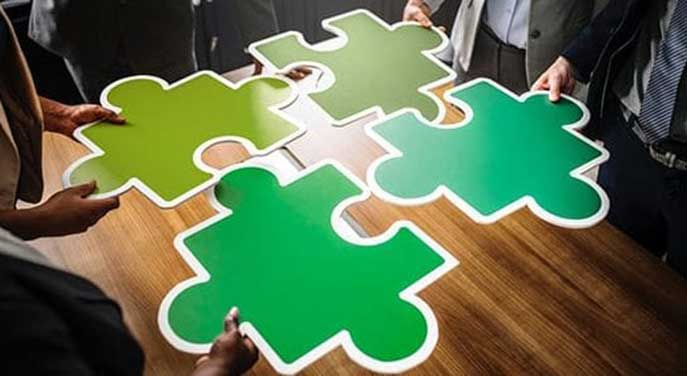 How does work change in an era of climate crisis? What skills will have value and how do we acquire them? What advice do we give young people entering the job market? How do we retrain those whose skills are no longer in demand? What roles do colleges and universities play in this workplace transition?
How does work change in an era of climate crisis? What skills will have value and how do we acquire them? What advice do we give young people entering the job market? How do we retrain those whose skills are no longer in demand? What roles do colleges and universities play in this workplace transition?
Plenty of evidence shows what’s working and not working in the job market.
Oil patch jobs, from rig workers to office staff, are in trouble. Anyone in the auto business, from mechanic to sales, should seriously consider the transition from internal combustion to electric motors and its impact on their work.
Robo-investor and old school investment advisers should seriously bone up on climate ethics and their impact on the equities market. And bankers should be thinking hard about how to build defensive and climate-friendly portfolios for their clients.
Airlines ought to be in close consultation with companies like Boeing and Airbus, stressing the growing call for low- or no-carbon emissions.
And so it goes – every old-economy business needs to plan for next-economy transitions.
A major part of the rethinking about the next economy will obviously fall to students.
Anyone still contemplating and practising climate crisis denial should sit down for coffee with a few generation Z or millennial students and ask how their job planning is going. My experience indicates a broad awareness of the crisis, a focus on building community around solutions, and a very practical understanding of next economy needs versus old economy practices.
No one is eager to build a pile of student debt to acquire useless skills in a time of structural economic change.
There’s also an expectation by students of climate relevancy in the education system.
International attention has focused on school strikes catalyzed by 16-year-old Swedish activist Greta Thunberg and her followers. Indications of broader impact are starting to appear. Swedish media recently reported that local train and bus travel was starting to eclipse short-haul air travel.
Thunberg also made headlines by arranging sailboat travel to upcoming meetings in New York rather than using a CO2-producing ship or jet.
Students this focused on the ethics of personal travel decisions will have short attention spans in classes and courses that are oblivious to the crisis.
One can detect a growing student interest in practical environmentalism, action-oriented research and a range of related topics.
Books like Range (David Epstein, 2019) and Letters to a Young Scientist (Edward O. Wilson, 2013) promote generalists who triumph in a specialized world, either in commerce or science.
There’s some indication that the classical liberal arts training that fell into disfavour in the 1990s as engineering and business schools increasingly promoted specialization (in what can now be seen as unacceptably climate-neutral disciplines), are drawing new adherents.
Narrow, specialized training doesn’t cut it in the work world of The Uninhabitable Earth: Life After Warming (David Wallace-Wells, 2019), where remedial environmental action is needed immediately on many fronts.
In the world of next-economy work, one of the greatest paradoxes may be the return of late-1800s-early-1900s technologies. Consider the world of pre-petroleum Europe and America.
My grandparents (born in the 1880s) remembered horses pulling wagons in London, sailboat travel across the Atlantic and Pacific, extensive walking and bicycling to work and play, the marvels of electrification, holidays spent close to home, the wooden-built urban environment before concrete and rebar, and diets that featured much local produce, slow-cooking and less beef.
They appreciated modernity in their time but treasured the old ways. They lamented the pace of petroleum-induced modernity, its financial cost and the substitution of conspicuous consumption for developing quality relationships based on non-monetary values. For them, the choice of work was based on core values; it was not a matter of money.
Maybe that’s exactly the state of mind and work we need to return to in our warming world.
Mike Robinson has been CEO of three Canadian NGOs: the Arctic Institute of North America, the Glenbow Museum and the Bill Reid Gallery. Mike has chaired the national boards of Friends of the Earth, the David Suzuki Foundation, and the Canadian Parks and Wilderness Society. In 2004, he became a Member of the Order of Canada.
The views, opinions and positions expressed by columnists and contributors are the author’s alone. They do not inherently or expressly reflect the views, opinions and/or positions of our publication.

